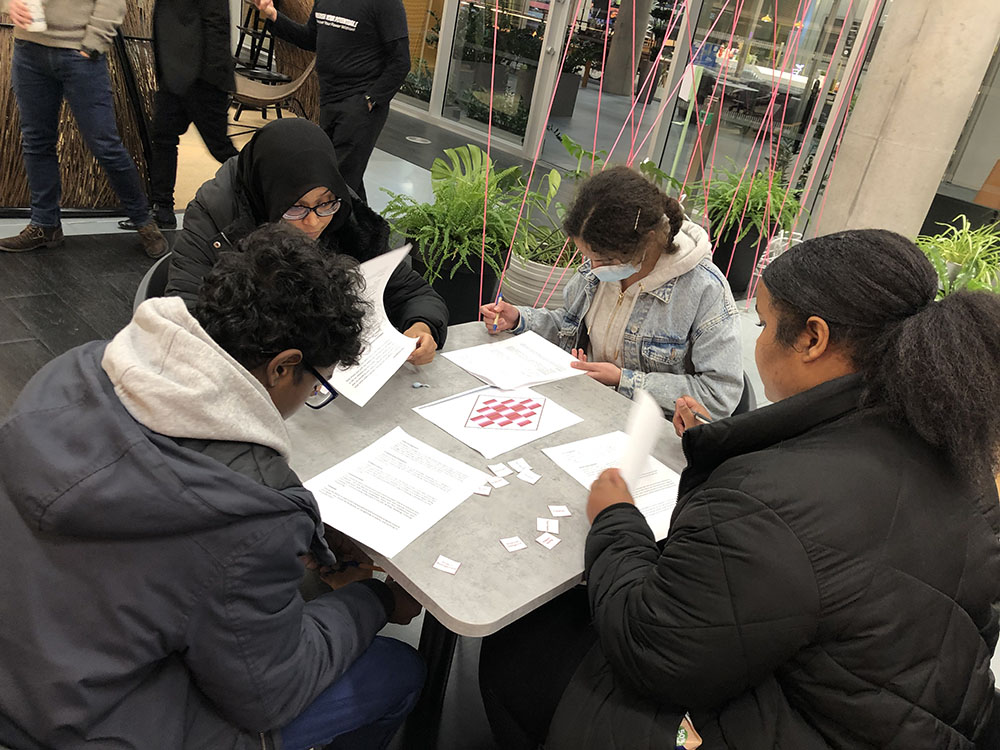
May 6, 2022
Aspiring students in London are learning about careers in medical technology, thanks to Boston Scientific employees who have volunteered their time to create and run a training and development programme for students at Phoenix Academy.
During the nine month programme, Boston Scientific employees present interactive weekend workshops covering how the industry works, communication, project management, IT skills, and job profiles, which help students understand what it takes to succeed in a global medtech company. Employees have built mentoring relationships with the 15 students who participate to boost their confidence and be a sounding board for any questions or concerns they may have.
The outreach aims to create a talent pipeline for an industry that is not on the radar for students, aged between 15-17, considering where to build their careers. According to the UK Office for Life Sciences, core medtech is the largest employer in the life sciences with 102,800 jobs1, or 40 percent of the industry. It generated turnover of £20.4bn in 2019.
Based in west London, Phoenix Academy admits students from the ages of 11-18: it has a range of cultural and extracurricular opportunities to equip them with the knowledge and confidence to be the best on whatever path they wish to follow. Phoenix Academy is a diverse institution: its values and ethos of Knowledge, Aspiration, and Respect intersect with those of Boston Scientific, which is why the academy was chosen to launch the programme.
“The research on bringing in underrepresented talent into different industries is clear: you need visible role models who give an insiders’ view on what it takes to rise to the top,” said Andrea Caradonna, product manager, Neuromodulation, co-lead of the outreach programme. “With 90,000 jobs forecasted in medtech by 2030 to replace those retiring and to achieve growth2, we need to ensure that potential applicants are aware of the different pathways into medtech, develop their confidence, and create inclusive workplace cultures to have fulfilling careers.”
“Data from the All-Party Parliamentary Group* on Diversity and Inclusion in STEM shows that 27 percent of the STEM workforce is female and that there is underrepresentation of Black workers, which is estimated at 1 percent in life sciences3,” said Satish Jakhu, Pelvic Health specialist, co-lead of the programme. “More needs to be done to change a wider workplace culture that welcomes diverse perspectives and backgrounds.”
“It's fantastic to see how our outreach is impacting young minds in such a positive way,” added Zarine Merciar-Smith, regional sales manager, Endoscopy, and co-lead of the programme. “A great example is a recent lecture given by a Gastroenterologist. He inspired the students to such a degree a few have indicated they would like to pursue a career in medicine. I don’t think there is a greater advocate than that. We’re excited about creating future leaders in medtech and showing them how to get to the next level.”
Sources:
1Bioscience and Health Technology Sector Analysis 2019 (publishing.service.gov.uk)
2 Life Sciences Jobs Expected to Grow by 133,000 Over Next 10 Years in the U.K. | BioSpace
3Report.ashx (britishscienceassociation.org)